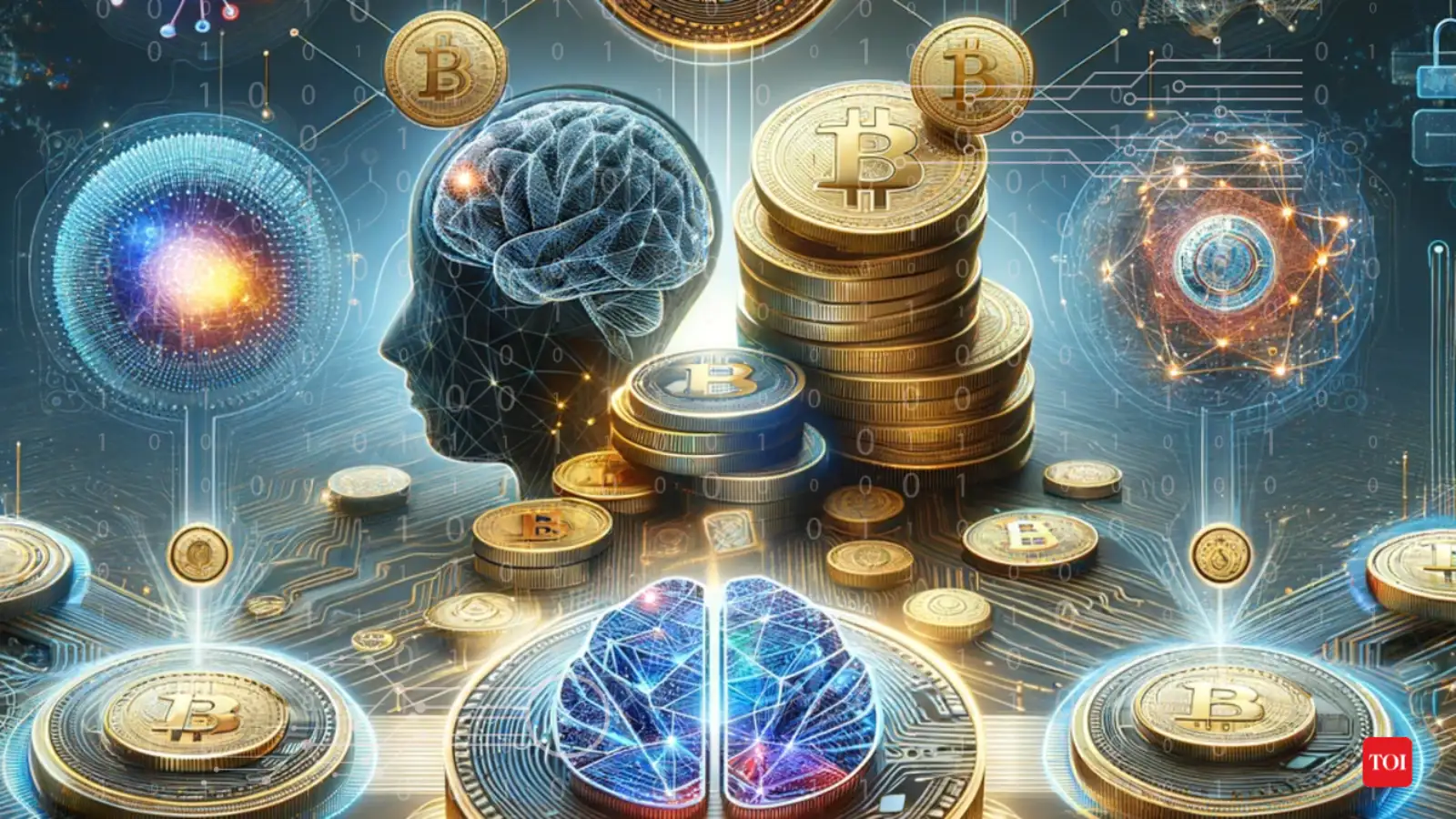Blockchain and artificial intelligence (AI) are two of the most influential technologies that are influencing the future of finance. AI has automated complex decision-making, while blockchain has enabled decentralized, secure digital transactions. Taken individually, these technologies have already revolutionized industries. These forces are currently converging, which raises an intriguing question: could cryptocurrencies that are created or managed by AI surpass the current top coins, such as Bitcoin and Ethereum?
AI’s ascension in the realm of cryptocurrency development
In the past, human teams—developers, founders, and communities—have been responsible for the design and governance of cryptocurrencies. However, AI introduces a novel paradigm in which algorithms can autonomously generate, optimize, and modify crypto networks on the basis of real-time data and predictive analytics.
Tasks such as: can be optimized by AI.
* **Protocol optimization:** Dynamically altering parameters, such as transaction fees, block sizes, or consensus algorithms, to achieve optimum efficiency. * **Security:** Promptly identifying and mitigating vulnerabilities in comparison to human teams.
* **Market analysis:** Adjusting tokenomics or incentives to anticipate trends. * **Governance:** Enabling decentralized decision-making through AI-driven proposals and voting systems.
Cryptocurrencies that are more resilient, adaptive, and efficient may result from these capabilities.
Benefits of Cryptocurrencies Generated by Artificial Intelligence
1. **Adaptation in a Dynamic Environment**
AI-driven coins have the potential to perpetually evolve in response to network conditions and user behavior, thereby surpassing the immutable constraints of numerous current cryptocurrencies. This could lead to increased scalability, reduced fees, and quicker transaction velocities without the need for manual intervention.
2. **Improved Security**
The capacity of AI to identify anomalies and anticipate attack vectors can enhance network security, thereby reducing the likelihood of breaches or fraud that have affected certain crypto projects..
3. **Economic Optimization**
AI has the potential to optimize token supply, inflation rates, and reward mechanisms in order to effectively incentivize user participation and maintain long-term value.
4. **Decreased Human Bias**
AI could streamline enhancements and policy changes by automating governance decisions, thereby reducing conflicts and political struggles that are prevalent in decentralized communities.
Potential Obstacles and Issues
Despite their potential, AI-generated cryptos encounter obstacles:
* **Transparency:** The decision-making process of AI can be intricate and opaque, which can make it challenging for users to fully comprehend changes or trust the system. * **Ethics and Control:** The delegation of critical governance to AI raises concerns about accountability and control—what is the responsibility if the AI acts in a detrimental manner?
* **Technical Complexity:** The development of a robust, autonomous AI that is capable of administering a live blockchain is a significant engineering challenge.
* **Regulatory Obstacles:** Authorities may be hesitant to approve AI-driven financial systems that lack obvious human oversight.
Is it possible for AI-generated cryptocurrencies to surpass the current market leaders?
Bitcoin and Ethereum, which are currently market champions, are able to capitalize on their established trust, proved technology, and robust communities. By providing superior adaptability and efficiency, AI-generated cryptocurrencies could either complement or even disrupt these leaders.
An AI-driven crypto project could speedily attract users and investors if it demonstrates tangible advantages, such as significantly lower fees, superior security, or smoother governance. Furthermore, hybrid models that integrate AI automation with human oversight have the potential to reconcile the disparity between innovation and trustworthiness.
The Future of the Intersection of AI and Blockchain
The integration of blockchain and AI is anticipated to intensify in the years ahead. In addition to autonomous cryptocurrencies, AI has the potential to improve decentralized financing (DeFi), automate compliance, and enable predictive analytics for traders and institutions.
The potential for AI to develop cryptocurrencies that are more intelligent and responsive is a frontier that has the potential to revolutionize digital finance by expanding the capabilities of blockchain networks.
Concluding thoughts
The foundation for the emergence of AI-created cryptocurrencies is being established, and they are no longer merely theoretical. Although they encounter substantial obstacles, their capacity to surpass the current crypto leaders by providing dynamic optimization, improved governance, and enhanced security is compelling.
The cryptocurrencies that capitalize on the capabilities of artificial intelligence may emerge as the leaders in digital dominance, as blockchain and AI continue to develop in tandem. This would inaugurate a new era of intelligent, adaptive finance.

Leave a Reply